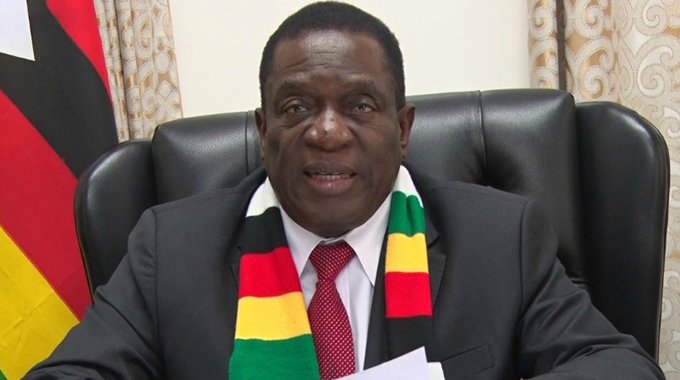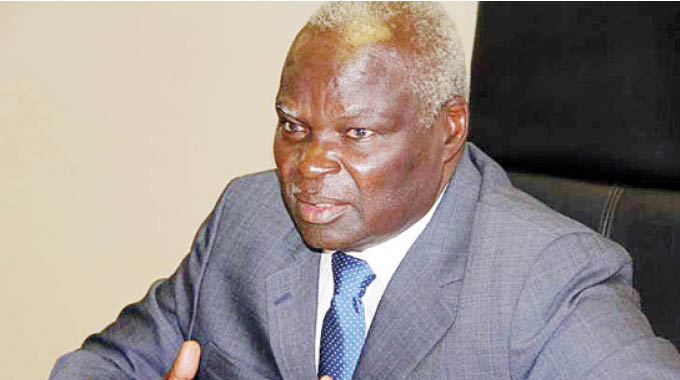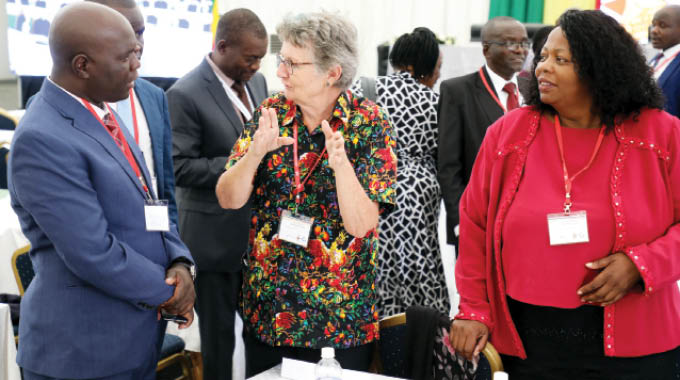EDITORIAL COMMENT: Zimbabwe-EU dialogue an opportunity for a fresh start

THE resumption of formal political dialogue between Zimbabwe and the European Union, which resumes next week at ministerial level, is a milestone development and will accelerate President Mnangagwa’s re-engagement drive while going a long way towards normalising relations.
It demonstrates both sides’ commitment to finding each other and the importance they attach to the re-engagement drive which is refreshing. Over the past two decades, relations between Zimbabwe and the EU have been frosty following the imposition of sanctions by the bloc in 2001 to punish Harare for embarking on the land reform programme.
However, following events of November 2017 during which the Zimbabwe Defence Forces launched Operation Restore Legacy which culminated in the ushering in of a new dispensation, the EU has reached out to Harare in an effort to have a reset of relations.
The bloc has also relaxed sanctions, paving the way for the current dialogue series which began with the first formal meeting between the two sides in about 17 years which was held on June 5 this year at the level of officials. The June 5 meeting was co-chaired by Foreign Affairs and International Trade permanent secretary Ambassador James Manzou and EU Ambassador to Zimbabwe Timo Olkkonen.
Next week’s meeting will take place in Harare and will be co-chaired by the Minister of Foreign Affairs and International Trade, Dr Sibusiso Moyo and Ambassador Olkkonen. It will focus on areas of co-operation between the two parties. In a statement on Monday, Ambassador Manzou said: “Following the successful launch on 5 June 2019 of the formal political dialogue between Zimbabwe and the EU under Article 8 of the Cotonou Agreement between the EU and African, Caribbean and Pacific countries, the second session of the dialogue will be held in Harare on 21 November 2019.
“The meeting will include the participation of the Ministries of Finance and Economic Development and Justice, Legal and Parliamentary Affairs on the Zimbabwean side and the Heads of Mission of EU member States accredited to Zimbabwe on the EU side.”
Ambassador Manzou said a number of co-operation areas and objectives would be discussed. “Discussion will focus on priorities, shared objectives and areas of co-operation between the two parties in the areas of economic development, trade and investment, human rights, democratisation, rule of law and good governance, development co-operation, humanitarian impact and climate change and global and regional partnership,” he said.
“The escalation of the second session of the formal political dialogue to ministerial level demonstrates progress in the Government’s engagement and re-engagement agenda, as well as commitment to strengthening co-operation between Zimbabwe and the EU.”
We welcome the second session of the Zim-EU political dialogue and are optimistic discussions will be fruitful and result in an elevation of relations to Head of State level. Zimbabwe has made giant strides in implementing political and economic reforms which are central to the country’s much vaunted Vision 2030.
It has repealed various pieces of legislation deemed inimical to good governance such as the Public Order and Security Act and Access to Information and Protection of Privacy Act. President Mnangagwa has also initiated dialogue with parties that participated in the 2018 harmonised elections under the Political Actors Dialogue platform.
He has reached out to the leader of the main opposition party — the MDC-A, Mr Nelson Chamisa, by offering him the position of Leader of the Opposition in the House of Assembly — a gesture which has so far been spurned. On the economic front, the Government has instituted far-reaching reforms ranging from repealing laws impeding the ease of doing business to currency reforms which have resulted in the return of the Zimbabwe dollar.
Treasury is also on course in its International Monetary Fund Staff Monitored Programme while it has notched important milestones in implementing its Transitional Stabilisation programme. In his budget statement tomorrow, Finance and Economic Development Minister Professor Mthuli Ncube is expected to announce a cocktail of measures to stimulate the economy and position it for growth in the second phase of the economic reform programme.
He will enunciate measures to enhance industrial growth, job creation and productivity in critical sectors such as agriculture, mining and tourism. Zimbabwe therefore goes into the second phase of the dialogue with the EU in a strong position to argue for a further easing of sanctions, resumption of normal trade and a strengthening of co-operation in all fields. This is because it has demonstrated a commitment to tenets of good governance, rule of law and respect for human rights. We hope the discussions will afford the two parties an opportunity for a frank exchange of views and be held in an atmosphere of mutual respect taking into account the giant strides Zimbabwe has made in adhering to some of the EU demands.
It should further be noted that the Second Republic cannot be judged on the actions of the former administration and deserves a chance to chart its own path unencumbered by the baggage of the past.












Comments